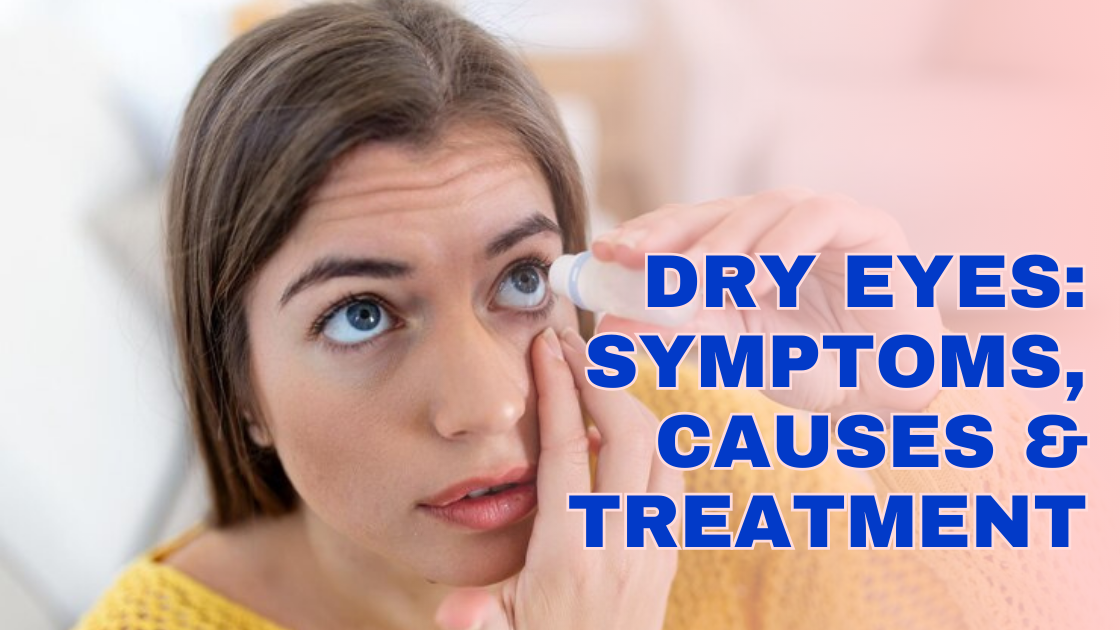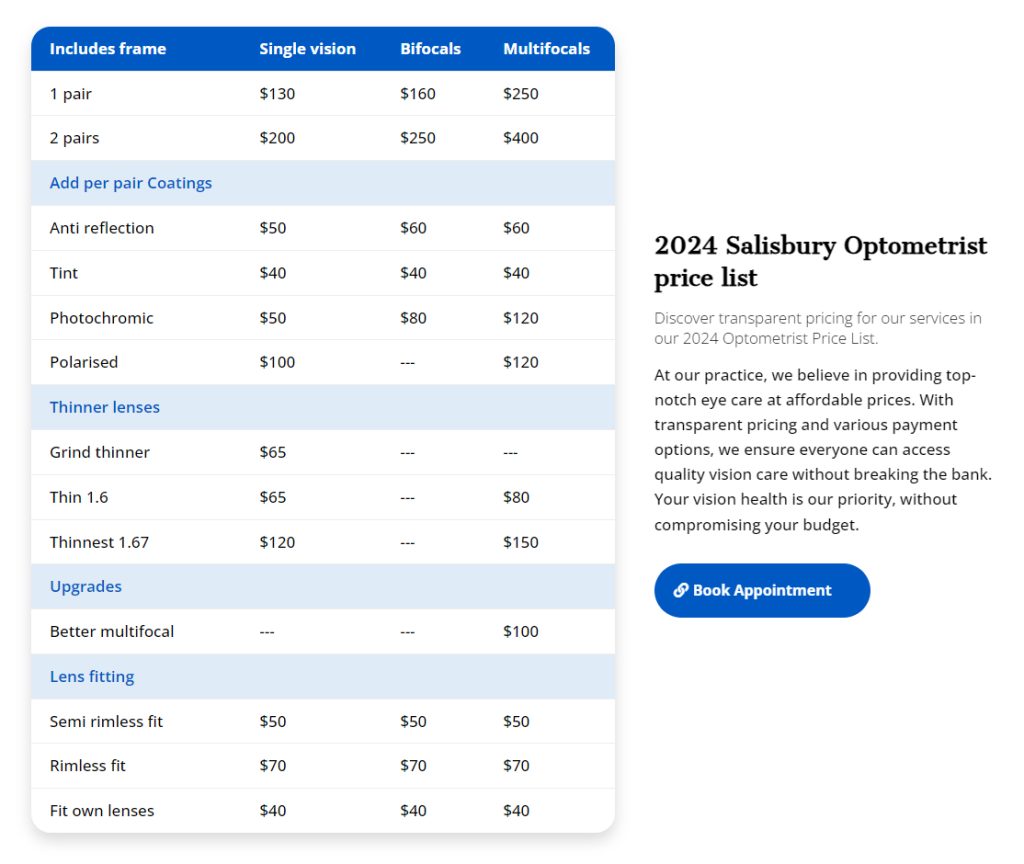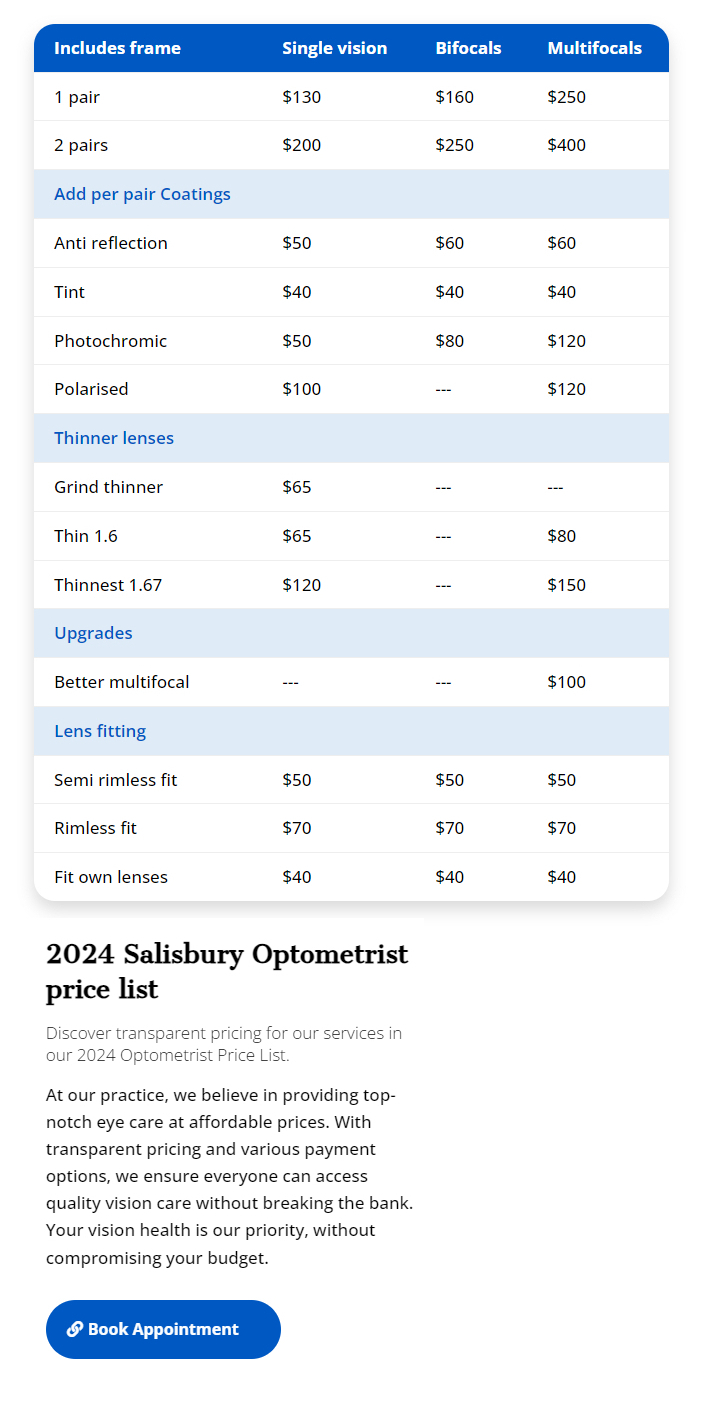Eyes are called the “windows to our soul.”
Every eye is different, and maintaining their health is your utmost priority. Various conditions can affect your vision. One of the most common eye conditions is dry eye. It happens when your eyes do not produce enough tears due to several conditions. In this blog, we will share everything you need to know about dry eyes. You will get to know the symptoms, causes, and treatments to cure this disease.
What Is Dry Eye?
A dry eye is a condition that occurs when your tears are not able to provide enough moisture to the eyes. The tear duct comprises of three layers:
- The oily layer: It is the outside of the tear film. It smooths the tear surface and keeps the tear from drying up too quickly. This layer is also known as the meibomian gland.
- The watery layer: This is the middle layer of the tear duct. It keeps the eyes clean and washes away the particles that do not belong in the eye. This layer comes from the lacrimal glands in the eyelids.
- The mucus layer: This is the innermost layer for the tear film. This helps spread the watery layer over the eye’s surface and keeps it moist.
Tears can be unstable and deficient for various reasons. It leads to inflammation and damage to the eye’s surface. You may experience dry eyes in certain situations, like in an airplane, in an air-conditioned room, or while riding a bike.
Symptoms Of Dry Eyes
The different signs that you might have dry eyes are:
- The sensation of burning and stinging in the eyes.
- Blurred vision, especially when reading.
- Scratchy eyes.
- Feeling like there is something gritty in your eyes.
- Eyes are red or irritated, especially when you are standing in the wind.
- It is painful to wear lenses.
- Feeling sensitive to light.
- Mucus comes out of your eyes.
- Unnecessarily watery eyes with tears that run down the cheek.
Although it may sound odd, eyes produce more tears when they are irritated.
Who Are At Risk Of Dry Eyes?
Anyone can get dry eyes. The risk factors for dry eye disease include:
- Age: People aged 50 years or older.
- Gender: Women are more likely to get dry eyes than men.
- Autoimmune illnesses: Rheumatoid arthritis, lupus, Graves’ disease, diabetes, scleroderma, and Sjogren’s syndrome.
- Medications: Certain medications, such as diuretics, antihistamines, isotretinoin, and some antidepressants can cause dry eyes.
Causes Of Dry Eyes
The leading causes of dry eyes are:
Imbalance In Tear Production
Healthy eyes have a constant covering of tear film covering the eyes. It is a fluid membrane that enables clear vision and prevents the eyes from becoming dry. Tear glands have three layers: The oily layer, the watery layer, and the mucus layer. If any of the layers are inflamed or do not produce sufficient oil, water, or mucus, it can lead to dry eye syndrome.
Decreased Tear Production
The tear production reduces by age 50. The eyes can become irritated and inflamed when the tear production drops to a certain level. This is more common in females, especially after menopause.
Treatment Of Dry Eyes
Some treatments for dry eyes include:
- Eye drops: Artificial tears are some of the most common treatments for mild dry eyes.
- Moisturizing gels & ointments: These medicines can be purchased over the counter.
- Washing or splashing water: Frequently washing eyes can help manage dry eyes.
- Prescription medicines: You can get an eye test from an ophthalmologist and get medicines to treat your dry eyes.
- Lifestyle changes: Giving your eyes adequate rest, following the 20-20-20 rule for your eyes (i.e., every 20 minutes, shift your eyes to look at something 20 feet away for 20 seconds), taking omega-3 fatty acid supplements, etc.
- Environmental changes: Avoid staying in dry places for a long time. Use a humidifier or place a warm compressor on your eyes.
How Is Dry Eye Diagnosed?
Dry eyes are diagnosed by an ophthalmology eye exam. The test emphasizes on the quantity and quality of tears produced. An ophthalmology eye exam consists of tests that check the visual acuity, visual fields, pupil function, intraocular pressure, etc. The ophthalmologist may check your past medical records and try to determine the main reason for your dry eyes.
If left untreated, dry eyes can damage the surface of your eyes. Your eyes can become inflamed, and you might suffer from problems like corneal abrasion and ulcers. This can eventually lead to poor sleep patterns, vision loss, and decreased quality of life. It is essential to consult an eye specialist as soon as possible to ensure your eyes are in their optimum condition and always twinkling.




0 Comments